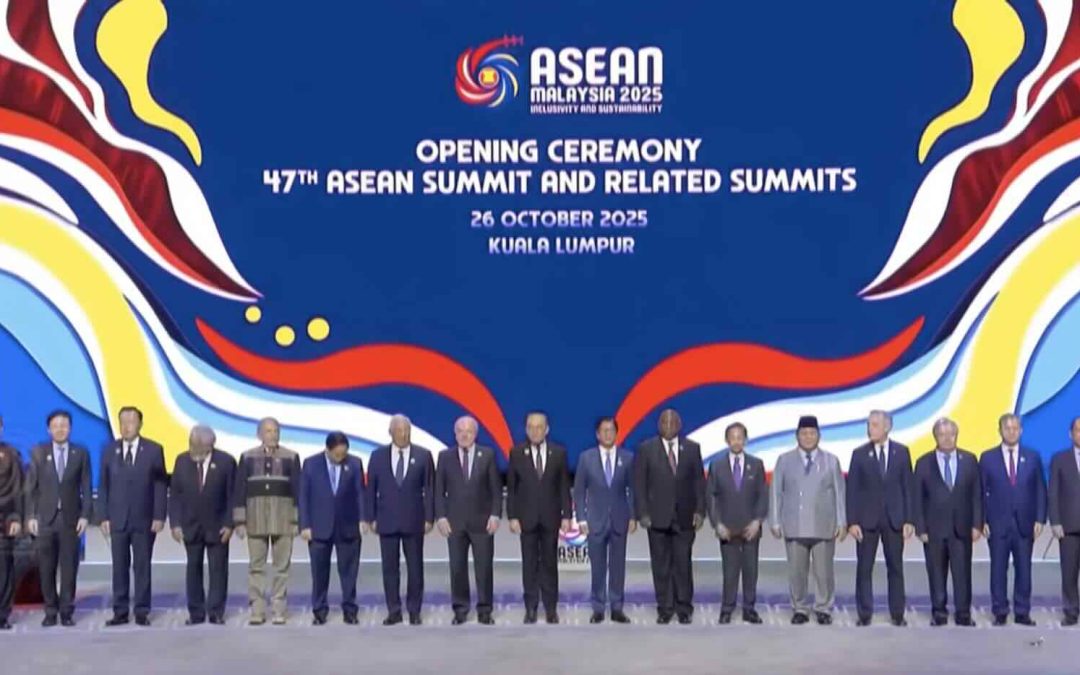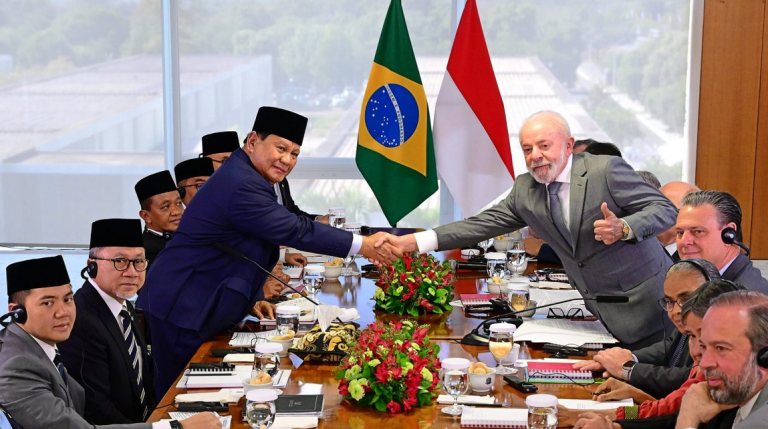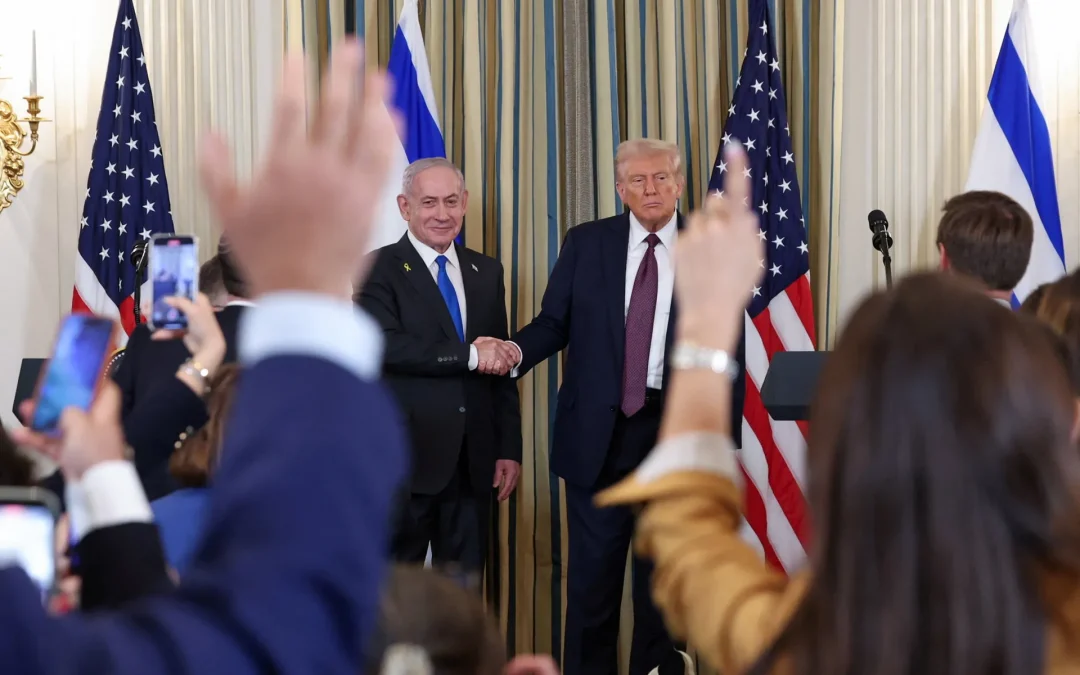The 2025 Asia-Pacific Economic Cooperation (APEC) Summit in Gyeongju, South Korea, themed ” Building a Sustainable Tomorrow,” marks a crucial phase for the Asia-Pacific economic order amid geopolitical rivalries and accelerating global technological transformation. Furthermore, the forum emphasizes three key priorities: Connect, Innovate, Prosper.
In their declaration, APEC leaders acknowledged that the Asia-Pacific region is now at a strategic crossroads. An increasingly fragmented global trading system, the accelerated adoption of transformative technologies such as artificial intelligence (AI), and demographic changes impacting the labor market present long-term challenges that require a collective response. Therefore, APEC reaffirmed its role as the premier forum for regional economic cooperation and an incubator of ideas in designing inclusive, sustainable, and future-oriented policies.
Three Key Priorities for APEC 2025
Asia-Pacific Economic Connectivity and Integration
Through the Connect agenda, APEC economic leaders reaffirmed their commitment to strengthening market-based regional economic integration. One key priority is accelerating the Free Trade Area of the Asia-Pacific (FTAAP) as a strategic instrument to lower trade barriers and enhance the resilience of global supply chains. The FTAAP is considered capable of strengthening the inclusion of small and medium-sized enterprises (SMEs) in cross-border trade flows, while expanding access to the digital economy and AI-based commerce.
APEC also emphasized the importance of cooperation in the Supply Chain Connectivity Framework Action Plan (SCFAP III, 2022–2026), which encourages cross-sector collaboration and private-sector involvement in building resilient, adaptive supply chains. This step is considered crucial for minimizing the impact of global disruptions, particularly those driven by geopolitical conflict, the pandemic, and climate change.
AI-Based Digital Innovation and Transformation
Under the Innovate agenda, APEC leaders agreed that advancements in science, technology, and innovation are key to generating new growth. Research collaboration, scientific talent exchange, and partnerships between institutions, businesses, and startups are fundamental to strengthening the region’s innovative capacity.
Digital transformation is considered capable of increasing productivity, connectivity, and participation of citizens and businesses across the Asia-Pacific. In this context, APEC reaffirms its commitment to the APEC Internet and Digital Economy Roadmap (AIDER) and welcomes the launch of the APEC AI Initiative as a collective step towards building a safe, inclusive, and human-centered artificial intelligence ecosystem. AI is considered to have significant potential to transform the global economic landscape by increasing efficiency, innovation, and competitiveness across sectors.
However, leaders also highlighted the importance of maintaining public trust in the digital ecosystem. Therefore, policies are needed that balance the benefits of AI with the ethics of its use, including efforts to strengthen digital literacy, protect data privacy, and ensure that digital transformation brings prosperity to all groups, especially vulnerable communities and MSMEs.
Inclusive Prosperity and Socio-Economic Resilience
Through the Prosper pillar, APEC reaffirmed its commitment to ensuring that the benefits of economic growth are felt by all levels of society. The forum emphasized the importance of empowering MSMEs and startups by eliminating regulatory barriers, strengthening supply chains, and improving workforce skills.
Furthermore, demographic changes, such as declining birth rates, aging populations, and rapid urbanization, are considered to require adaptive, intergenerational policies. APEC also endorsed the Collaborative Framework for Demographic Changes as a new guideline for creating inclusive growth opportunities for young people and vulnerable groups. The forum also strengthened cooperation in the areas of energy, food security, and health. Strengthening energy infrastructure, diversifying resources, and utilizing digital technology and AI in the health sector are key focuses towards a resilient and resilient Asia-Pacific region.
While seemingly diplomatic, this declaration marked a significant change. For the first time since 2021, the term “World Trade Organization (WTO)” and the commitment to the multilateral trading system were removed from the final document. This move is seen as reflecting the new reality of an increasingly fragmented global trade order due to competing economic policies between the United States and China.
Professor Heo Yoon of Sogang University believes the removal of references to the WTO reflects a “tacit admission” that restoring a free trade order based on multilateralism is difficult. “We cannot deny that a paradigm shift has occurred in the global trade order,” he said.
The United States, China, and the Shift in Global Economic Leadership
The 2025 APEC Summit was held under the shadow of US President Donald Trump’s protectionist policies, which reiterated his America First philosophy. Before the forum began, Trump signed bilateral agreements with China and South Korea, but left Seoul before the plenary session, leaving the Washington delegation represented by Treasury Secretary Scott Bessent. Trump’s absence from the main forum demonstrated a decline in the United States’ commitment to regional economic leadership.
China exploited this symbolic void to assert its position as a leading proponent of free trade and economic openness. In his closing speech, President Xi Jinping expressed his country’s readiness to host the 2026 APEC Summit in Shenzhen, a city he called a “miracle of global economic transformation” and a symbol of China’s openness to global cooperation.
Xi also proposed the creation of the World Artificial Intelligence Cooperation Organization, an initiative to strengthen global collaboration in the field of artificial intelligence (AI). While it does not explicitly regulate AI, this initiative reinforces China’s image as a force actively proposing new directions for the global economic order.
International relations analyst Li Xing of the Guangdong Institute said, “China is using Trump’s absence from the forum to reassure countries worried about the United States’ declining commitment to the region.” However, most APEC members remain cautious about giving the impression that China is taking over the dominant role of the United States.
South Korean Diplomacy: Balancing Beijing and Washington
As host, President Lee Jae-myung plays a crucial diplomatic role in balancing relations with both major powers. Lee, who takes office in June 2025, faces a dual dilemma: keeping South Korea’s export economy out of the US-China trade war and defusing tensions with North Korea.
Lee received state visits from both Trump and Xi in the same week, signaling Seoul’s balanced diplomatic strategy. In his press conference, Lee called South Korea-China relations “not yet completely normal” and hoped to find “new paths of mutually beneficial cooperation.”
Towards Shenzhen 2026: APEC’s New Direction in an Era of Rivalry and Technology
At the handover ceremony for APEC from South Korea to China on November 1, 2025, President Xi Jinping emphasized that APEC is the most important mechanism for economic cooperation in the Asia-Pacific region, contributing significantly to regional growth and prosperity. China, which will host APEC for the third time in 2026 in Shenzhen, is committed to using this momentum as an opportunity to advance the vision of the Asia-Pacific Community.
President Xi emphasized that Shenzhen, once a fishing village and now a global metropolis, is a symbol of China’s economic transformation and openness. In this spirit, APEC China Year 2026 is expected to provide momentum to strengthen the practical cooperation agenda in the areas of Free Trade Agreement (FTAAP), connectivity, the digital economy, and artificial intelligence.
APEC economic leaders enthusiastically welcomed China’s chairmanship next year and expressed hope that APEC Shenzhen 2026 would be a significant milestone in strengthening regional economic integration and affirming the Asia-Pacific’s role as a global hub for innovation and growth.
Author: Nazwa
Reference :
2025 APEC Leaders’ Gyeongju Declaration ( https://www.apec.org/meeting-papers/leaders-declarations/2025/2025-apec-leaders–gyeongju-declaration )
Asia-Pacific leaders call for shared trade benefits as APEC summit wraps up ( https://www.reuters.com/world/china/south-korea-woo-chinas-xi-with-state-visit-apec-wraps-up-2025-11-01/ )
The WTO is “Missing” from the Gyeongju Declaration of the 2025 APEC Summit. What Does It Mean? ( https://www.cnbcindonesia.com/news/20251101155211-4-681343/wto-hilang-dari-deklarasi-gyeongju-ktt-apec-2025-pertanda-apa )







